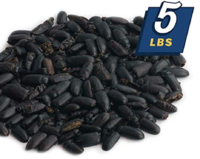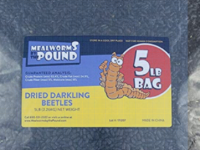urbanutah
Chirping
So, I bought a bag of dried darkling beetles at a well-known big box online store. I thought I would "mix-things-up" a little and add something new to my girls breakfast blend I make for them, which has a whole host of nutritious things in it. After the bag arrived, I decided to consult Dr. Google and read that "live" darkling beetles are bad and carry all sorts of horrid things and should not be fed to backyard chickens. What I purchased are dried beetles, not live. Fortunately, I keep a very clean coop and have a small flock and don't have a "live" darkling beetle problem. However, I'm concerned about adding these high protein dried darkling beetles to their breakfast blend and wonder if the dried beetles could expose my flock to the terrible diseases or parasites they carry even in their dried form? Can someone shed any light on this? I don't feed my girls mealworms, they get dried soldier fly larvae instead and I hoped these high protein dried darkling beetles would be a nice addition to their breakfast mix.




 I've seen tiny little black beetles on rare occasions in my yard that are smaller than these dried ones, but they are few and far between.
I've seen tiny little black beetles on rare occasions in my yard that are smaller than these dried ones, but they are few and far between.



